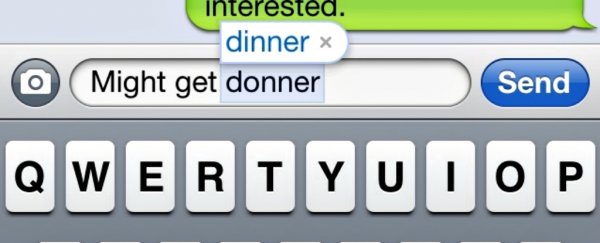Neuroscientists think they've finally figured out what our brain is doing when we finish someone's sentence for them - and it goes against our current understanding of how memory and language interact.
Based on brain activity measurements, a team from the US has found evidence that our hippocampus - the area of the brain responsible for memory - is largely to blame for us trying to complete other people's sentences.
This suggests that our minds automatically try to fill in blanks in sentences based off of our memories of language and how the other person speaks, a finding that links memory and language together for the first time.
"Language is something that has classically been viewed as evolving and occurring in the cortex, which is why we have language and rats don't," said team member Robert Knight, from the University of California, Berkeley.
"Despite the fact that the hippocampal area of the medial part of the temporal lobe is well known to be linked to spatial and verbal memory in humans, the two fields have been like ships running in the fog, unaware that the other ship is there."
A good way to think about these new findings is to consider your smartphone. When you first send a text with a weird word in it, your phone tries to correct it to something it thinks you want.
Over time, though, it learns that the weird word is actually the word you want to use, and will start to fill it in for you. If the new research is correct, the same sort of thing happens inside our brains when we're having a conversation.
To come to their conclusion, the team used electrodes to monitor the hippocampi of 12 epileptic patients who were being studied by another team to understand their unique brain activity.
With the electrodes in place, Piai and her colleagues then told the participants a series of six syllable incomplete sentences, such as: "She locked the door with the …" or "She came in here with the …".
After the sentence was read out, the team held up a card with the answer on it, monitoring the participants' hippocampus - on the non-epileptic side of the brain - the entire time.
They found that 10 of 12 people produced a "burst of synchronised theta waves in the hippocampus" - an activity well-linked to memory association - when the sentences had an obvious answer.
When the sentences had no obvious answer, the participant's hippocampi ramped up activity even more as it tried, in vain, to predict the correct word.
"[It] showed that when you record directly from the human hippocampal region, as the sentence becomes more constraining, the hippocampus becomes more active, basically predicting what is going to happen," Knight said.
"The hippocampus started building up rhythmic theta activity that is linked to memory access and memory processing."
These findings hint that the hippocampus might play an integral role in language - which was once thought to occur only in the cortex - though right now, no one really knows how the link truly works.
Because of this, the team hopes to continue their work to better understand the bridge between memory and language, which will hopefully give us a better understanding of the brain itself.
The research has been published in Proceedings of the National Academy of Sciences.
